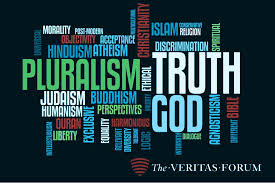I have written this post in response to Kazakhstan as an example of intercultural hub post by Darina. I intend to shed light on the process of fostering pluralism through history, culture, and education.
Now, after 24 years of gaining independence, Kazakhstan has managed to unite ethnically, culturally and linguistically heterogeneous populations under one umbrella of the citizenship of an ambitious young state. However, one should be realistic: from the international observers’ position, the level of the democracy development in Kazakhstan leaves much to be desired (Freedom House, 2013). But Kazakhstan enjoys relatively sustainable development in comparison with ethnic tensions in other countries. Via reconsideration of the history distorted in the Soviet times and a combination of cultural and general education, Kazakhstan paves the way to pluralism.
The historical literacy, especially for a multi-ethnic state, can be “the route for reconciliation” (Boutilier, 2012, p. 13). Kazakhstan shifted from using history for indoctrination as it occurred under the Soviet rule, to acknowledging the failures of the past. Now the Kazakhstani students study the History of Kazakhstan and the World History as mandatory subjects at all educational institutions. These courses allow students to get an insight on how the civilization evolved in other countries. This awareness fosters open-mindedness and provides opportunities to analyze the events and processes of the past through a critical lens. National uprisings for independence, equity and human rights receive another reconsideration different from “nationalistic, racist or chauvinistic” as it used to be. The names of the victims of the repression in 1930-1940s, the national heroes, and those historical personalities are resurrected and released from stigmatizing. The justice for, and appreciation of, the individuals who contributed to the development of the national unity and consciousness, have been restored. Therefore, through the learning and reconsideration of history we are to avoid the mistakes of past experiences.
Mutuality, tolerance, and intercultural literacy, as Boutilier (2012) mentions, can be fostered through the interplay between education and culture. In Kazakhstan, this process commences in early childhood education. In preschool and kindergarten, different cultural activities are organized to celebrate May 1st (the unity of the peoples of Kazakhstan), March 22nd (Nauryz – the Eastern new year), December 31st (New Year), Maslenitsa (an Eastern Slavic religious and folk holiday). From the beginning, children are exposed to realizing the richness of diversity in Kazakhstan. The Assembly of the Peoples of Kazakhstan, aimed to reinforce the state policy on interethnic dialogue and tolerance, has branches in every region where the locals along with the ethnic minorities can attend cultural centers, heritage/Sunday schools. Pluralism evolves not only by empowering the diasporas, but also by providing the rights to the mother-tongue education. There are Uzbek, Kyrgyz, Uighur, Korean, German, Ukrainian, and Polish schools, where children pursue education through the mother tongue as the medium of instruction. The moral upbringing at schools, colleges and universities is targeted on building a civic society where the citizenship is not the privilege of the titular nations but a shared commitment and humanity. Thus, the younger generations grow up being the Kazakhstani citizens without division between Kazakhs and non-Kazakhs.
In a nutshell, history, education, and culture gradually establish the ethic of pluralism in Kazakhstan by changing attitudes to the events of the past and by appreciating the linguistic and cultural heritages. Yet, Kazakstani democracy is far from being fully achieved. Notwithstanding pluralism’s evolving character, we can be proud of living peacefully. We are the speakers of different languages – we are followers of different religions. For some people it is a great difference; for us it is the sign of our uniqueness. Uniqueness of peoples, diversity of minds. Education and history, culture and history. They help to inculcate the sense of respect. Respect to diversity.

A very thoughtful post, Aisara! I think that pluralism could be easily fostered in Kazakhstan because of our unique features and rich history. But, to my mind, what happens often in our country is how we treat things. We usually tend to treat our qualities negatively, take after other countries, and learn worse from them. I think everything will come with time, since now critical thinking is being fostered and that must lead to change of opinions and attitudes of Kazakhstani people towards our advantages.
LikeLiked by 1 person